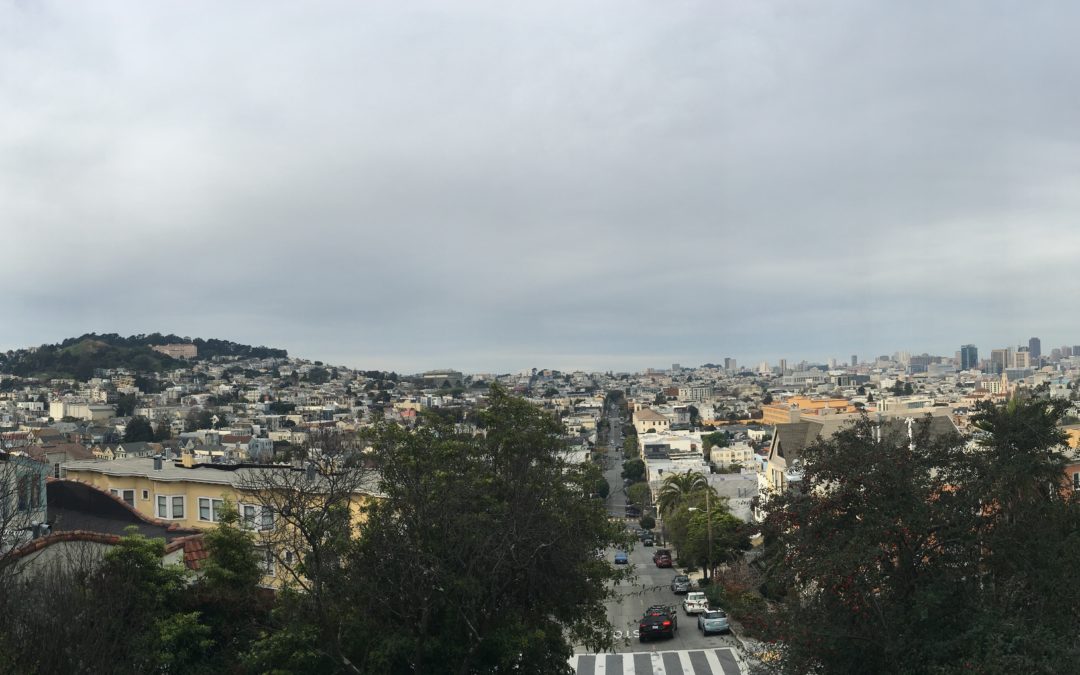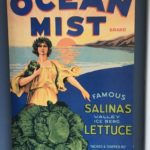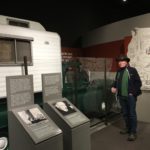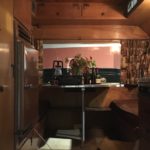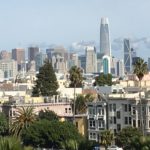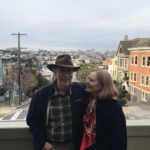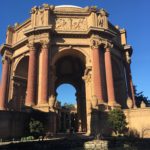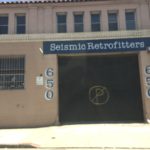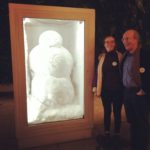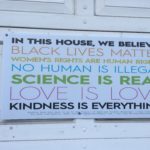Jan. 15 Salinas to San Francisco
We surprised ourselves by skipping our beloved Monterey aquarium, and setting off instead to see something new: the John Steinbeck center in Salinas. Here on display was Rocinante–his Travels With Charley camper–and other mementos of the America he brought to life.
- With Rocinante
- Inside Rocinante
Steinbeck chose to represent the underdog, as a great journalist must do. He worked in the lettuce fields, instead of taking his place in Salinas’s middle class. His father was a California businessman, a middle manager at a flour company that went bust, and then, at Spreckels, the largest sugar company in the world. John Steinbeck was a contemporary of Hemingway, but he was more interested in social justice than proving his manhood. Steinbeck’s novels told the world about the invisible victims of the Great Depression, like the Dustbowl Okies, who fled from their forfeited farms to California, only to starve or be exploited there.
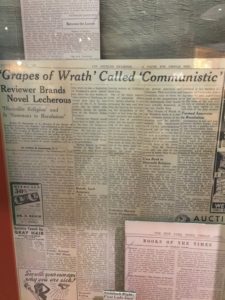
Banned and Burned
The city fathers in Salinas were not comfortable with the ugly truths he exposed, calling his work “Communist propaganda.” In Kern County, they banned his books and burned Grapes of Wrath in a town square! But Steinbeck prevailed, winning the Pulitzer Prize, the National Book Award, the Nobel Prize for Literature, and the Presidential Medal of Freedom in 1964. Today there is fancy building in the middle of town, called the National Steinbeck Center. It is one of Salinas’ main touristic claims to fame.
As we headed up to San Francisco at last, John decided that we should also name our car, in honor of our own journey across America. It would be Easy Rider, after the iconic 1969 hippie road trip movie featuring Peter Fonda. Peter’s father Henry Fonda starred in the 1940 film of Steinbeck’s Grapes of Wrath, which launched his film career.
When we finally arrived at Sanchez St., we were ready for this journey to end. Now we could settle in to the Wild West of San Francisco’s Castro neighborhood, with its rainbow flags, composting rules and counterculture history. Here, every fetish was a noble rebellion. The punky skunky smell was artisanal marijuana, sold legally at the nearby Apothecarium. When two young, white homeless men in a bedraggled tent set up on the sidewalk across from the laundromat, the police came to move them along. But instead of snarling and arresting them, the way they do in Budapest or New York, the officer asked, “Do you need services?”
Ah, we’ve come a long way, from Boston, and even Salinas. It’s time to cultivate our garden–and think about all that we’ve seen.
- Palace of Fine Arts
- Instability as a Business
- The Snowman on Display at SF MOMA, To remind us we aren’t in Boston any more
THE END.

